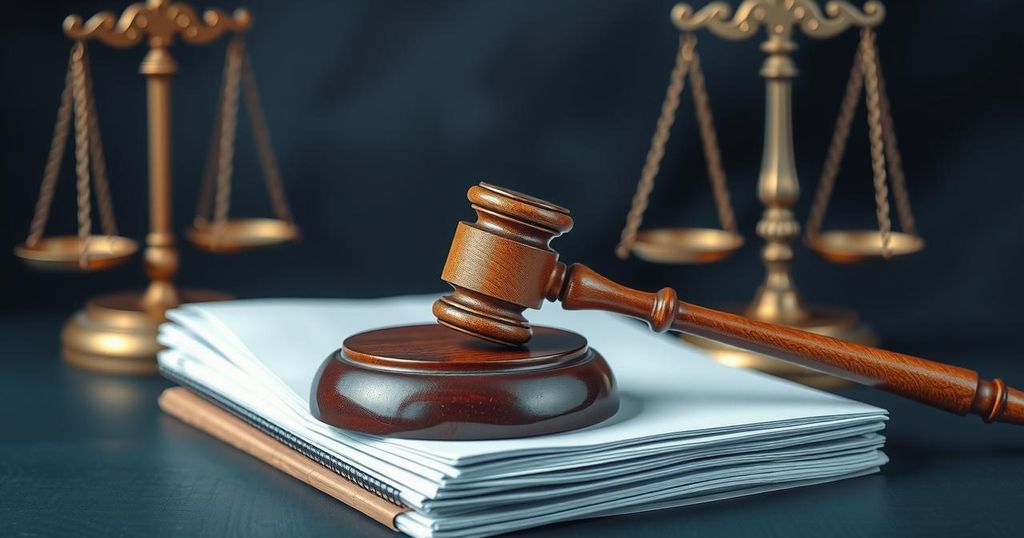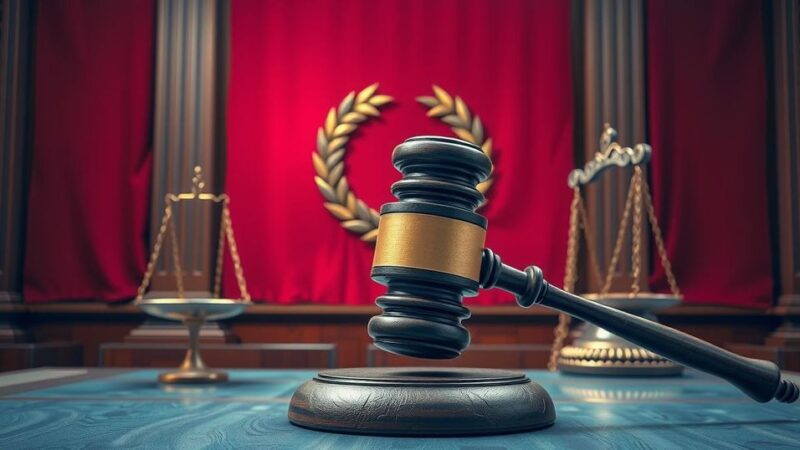The article investigates the troubling trend of leaked judicial decisions in Nigeria’s electoral disputes, emphasizing the detrimental impact on public trust in the judiciary. Historical examples reveal long-standing suspicions of collusion between the judiciary and political figures, culminating in recent controversies surrounding the integrity of judicial decisions. The piece also honors Joseph Otteh’s legacy of advocating for accountability and credibility within Nigeria’s legal system.
In recent years, allegations of leaked judicial decisions in Nigeria’s election disputes have surged, raising serious concerns over the integrity of the nation’s judiciary. During the Edo State Governorship Election Petition Tribunal on April 2, 2025, presiding judge Wilfred Kpochi took the unusual step of confirming with his colleagues the unanimity of their judgment after a leak suggesting a split decision had circulated. This incident reflects a troubling pattern whereby leaks forecast tribunal outcomes, undermining public trust.
Historical instances, dating back to Nigeria’s return to presidentialism in 1979, illustrate ongoing suspicions surrounding judicial proceedings. The initial inquiry by Chief Awolowo against President Shehu Shagari’s electoral victory led to perceived collusions between military leaders and judicial appointees, thereby compromising judicial independence. Similar allegations persisted when, in 2008, the Action Congress party claimed the leaked judgment regarding the 2007 presidential election did not “stand the test of time” due to perceived bias.
The pattern of alleged pre-judgment revelations continued leading up to the 2023 Presidential Election Petition Tribunal. Candidate Bola Ahmed Tinubu’s trip to India coincided suspiciously with the timing of the tribunal’s judgment announcement, raising eyebrows about potential pre-judgment collusion. Such ongoing suspicions reflect a profound public disillusionment with the judicial process, which is increasingly perceived as lacking integrity.
These concerns were palpable during the valedictory session of the 9th Senate in June 2023, where Senator Adamu Bulkachuwa acknowledged the tendency of judges to cultivate relationships with politicians, suggesting a lack of independence in judicial decisions. This sentiment of compromised integrity was echoed by Nyesom Wike, the Minister of the Federal Capital Territory, despite his harsh criticism directed towards the leadership of Nigeria’s legal community.
The legal community mourns the loss of Joseph Otteh, who dedicated his life to restoring faith in Nigeria’s judicial and legal institutions through his organization, Access to Justice. His efforts reflect a persistent struggle against the fading lights of justice in Nigeria, a struggle that remains relevant as demonstrated by recent controversies and allegations surrounding the judicial process. Otteh’s contributions serve as a reminder of the indispensable need to uphold judicial integrity and public trust in Nigeria’s legal system.
The article highlights a troubling trend of leaked judicial decisions in Nigeria’s election disputes, undermining public confidence in the judiciary’s integrity. Historical precedents illustrate a long-standing blend of politics and judiciary, culminating in ongoing allegations of collusion and bias. The legal community, particularly in the wake of Joseph Otteh’s passing, faces an urgent responsibility to restore faith in the integrity of Nigerian judicial institutions. Such efforts are necessary to combat the erosion of public trust in the justice system.
Original Source: www.thisdaylive.com






